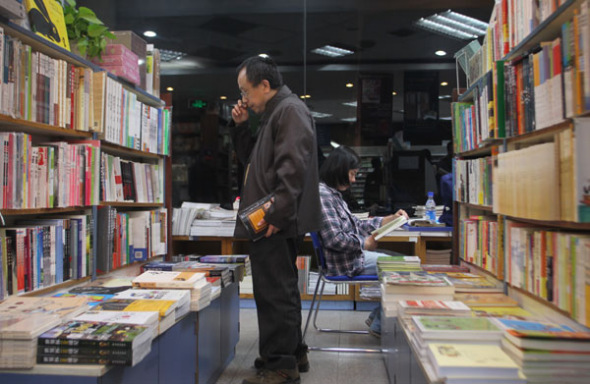 |
| Readers burn midnight oil in Beijing's first 24-hour bookstore, the Sanlian Taofen Bookstore. [Zou Hong/China Daily] |
Most bookshops in Japan rely on recommendations from publishers because they can return the dead stock and don't need to worry about losing money.
"That's why customers are bored. They see the same books on shelves in most bookstores across the country," says Takahiro Kamata, executive officer of Culture Convenience Club, a Japanese company that operates Tsutaya.
"Only 12 percent of the books for sale in Daikanyama T-Site are the same as those in other Japanese bookstores," Kamata says. "To make reading a part of people's real life, we develop a lot of events, which customers can participate in."
For example, the bookstore has hosted morning markets, cooking workshops, traditional tea ceremonies and a vintage car parade.
Mao Jihong, president of Exception de Mixmind and a co-founder of Fang Suo Commune, says it's a big thrill for him to see customers like Lu, embracing the lifestyle that he advocates in the bookstore.
"Traditional Chinese culture values reading books, but this seems to have been forgotten by many people as they have been chasing wealth during the reform and opening up in the past three decades," Mao says.
"However, I still have a dream of opening a bookstore which is a public commune like the Ancient Agora of Athens, where knowledge, science, wisdom and lifestyle are spread to the public.
"It's the Utopia for many book lovers."
We recommend:
